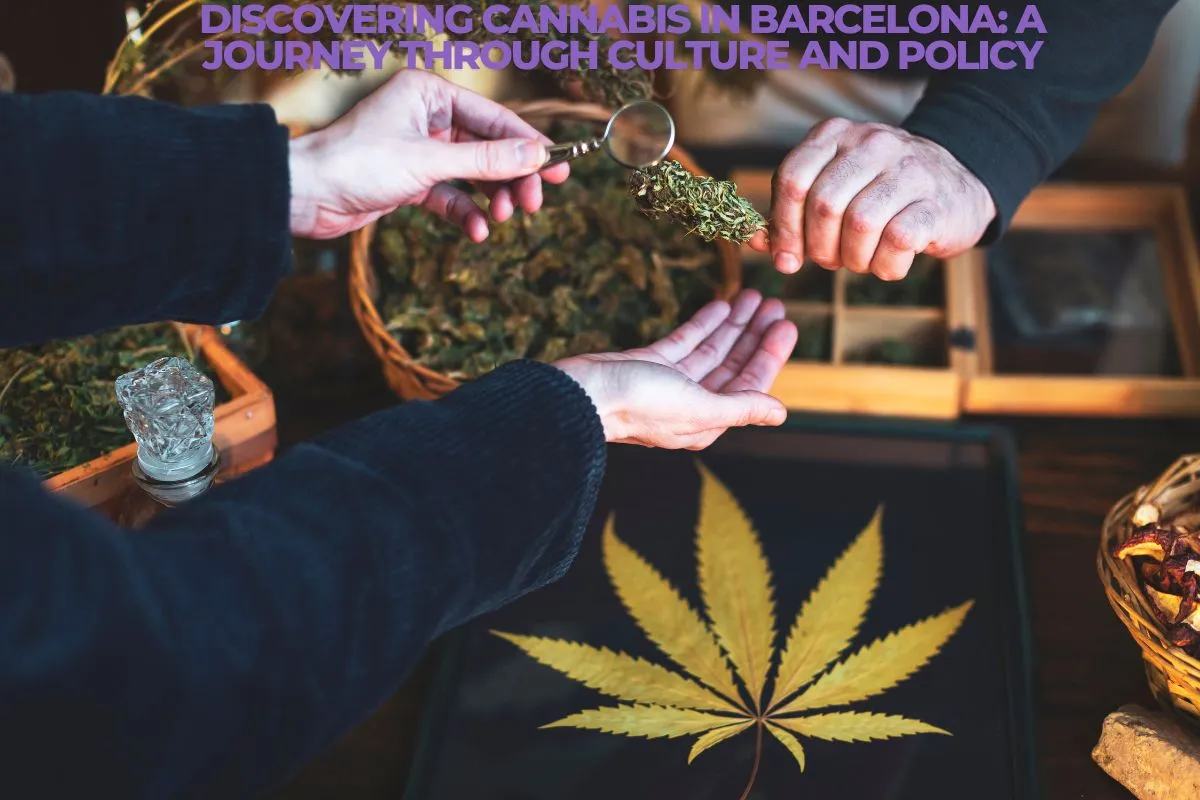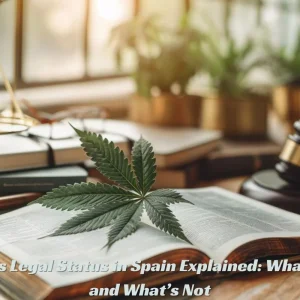Barcelona is a city that needs no introduction. Known for its stunning architecture, vibrant culture, and sunny beaches, it’s a destination that captures the hearts of millions. But there’s another side to Barcelona that often sparks curiosity: its unique relationship with cannabis. Whether you’re a local, a tourist, or simply someone interested in the evolving world of cannabis, Barcelona offers a fascinating lens to explore this topic.
In this article, we’ll dive into the cannabis world in Barcelona, exploring its cultural significance, the policies that shape its use, and the personal stories that bring it to life. Along the way, we’ll hear from experts, examine studies, and share some unique insights to help you understand this complex and ever-evolving subject.
A Personal Introduction to Cannabis in Barcelona
I still remember my first visit to a cannabis club in Barcelona. It was tucked away in a quiet neighborhood, far from the bustling tourist spots. The entrance was discreet, almost hidden, but once inside, I was greeted by a warm, welcoming atmosphere. The space felt more like a cozy café than anything else, with comfortable seating, soft lighting, and a sense of community that was palpable.
This experience opened my eyes to a side of cannabis culture that I hadn’t seen before. It wasn’t about reckless use or shady dealings; it was about responsible consumption, education, and connection. It was a far cry from the stereotypes I’d grown up with, and it left a lasting impression on me.
The Legal Landscape: Cannabis Clubs and Spanish Law
One of the most unique aspects of cannabis in Barcelona is the existence of cannabis clubs. These private, members-only spaces operate in a legal gray area, offering a way for people to consume cannabis without running afoul of Spanish law.
In Spain, the personal use and cultivation of cannabis are decriminalized, but selling it remains illegal. This has led to the rise of cannabis clubs, where members can grow and share cannabis collectively. These clubs are regulated by regional laws, and they operate under strict guidelines to ensure they don’t attract unwanted attention.
As Dr. Ethan Nadelmann, founder of the Drug Policy Alliance, once said, “Drug policy should be based on evidence, not ideology.” This sentiment resonates deeply in Barcelona, where cannabis clubs have become a practical solution to a complex issue.
The Role of Cannabis in Barcelona’s Culture
Cannabis has long been a part of Barcelona’s cultural fabric. From artists and musicians to everyday locals, many people view it as a natural part of life. This acceptance is rooted in a broader Spanish tradition of socializing and enjoying life’s simple pleasures.
Walking through the streets of Barcelona, you’ll often catch the faint scent of cannabis in the air. It’s a reminder that, for many, this plant is more than just a substance—it’s a way to relax, connect, and unwind.
Amanda Feilding, director of the Beckley Foundation, emphasizes the importance of regulation in reducing harm. “Regulation of cannabis can reduce the harms associated with its use and disrupt the illegal market,” she says. In Barcelona, cannabis clubs provide a regulated environment that prioritizes safety and quality.
The Economic Impact of Cannabis in Barcelona
The cannabis industry has also had a significant economic impact on Barcelona. From job creation to tourism, it’s a sector that continues to grow.
Studies on the economics of cannabis regulation highlight the potential benefits of legalization, including increased tax revenue and reduced law enforcement costs. In Barcelona, cannabis clubs contribute to the local economy by creating jobs and attracting visitors who are curious about this unique aspect of the city’s culture.
Cannabis and Public Health: A Balanced Approach
Public health is a key consideration in any discussion about cannabis. Dr. Sanjay Gupta, CNN’s chief medical correspondent, stresses that “public health should be the primary focus of cannabis policy.”
In Barcelona, cannabis clubs play a role in promoting responsible use. They provide a safe space for consumption, away from public areas, and often offer educational resources to help members make informed decisions.
Research on the therapeutic potential of cannabis also underscores its potential benefits. Dr. Raphael Mechoulam, a pioneer in cannabis research, notes that “cannabis has potential therapeutic benefits, and further research is needed to explore its medical applications.”
Social Equity and Cannabis Policy
The impact of cannabis policy extends beyond economics and public health—it also has profound social implications. Kassandra Frederique, executive director of the Drug Policy Alliance, argues that “social equity must be a central component of any cannabis legalization or regulation framework.”
In Barcelona, cannabis clubs have helped shift the narrative around cannabis use. By providing a legal and regulated alternative to the black market, they’ve reduced the stigma associated with cannabis and created opportunities for marginalized communities.
A Glimpse into the Future
As the global conversation around cannabis continues to evolve, Barcelona offers a glimpse into what the future might hold. The city’s approach to cannabis clubs demonstrates that it’s possible to balance regulation, public health, and social equity.
Richard Branson, a vocal advocate for drug policy reform, sums it up perfectly: “The war on drugs has failed, and it’s time for a new approach.” Barcelona’s cannabis clubs are a step in that direction, offering a model that other cities and countries could learn from.
A Day in the Life of a Cannabis Club
To truly understand cannabis culture in Barcelona, I decided to spend a day at one of the city’s most popular weed in Barcelona. The experience was eye-opening. The club was filled with people from all walks of life—locals catching up with friends, tourists curious about the scene, and even professionals unwinding after work.
What struck me most was the emphasis on education. The staff were knowledgeable and eager to share information about different strains, their effects, and responsible consumption practices. It felt less like a “club” and more like a community center where people could learn and connect.
One member, a graphic designer named Maria, shared her story with me. She had joined the club to manage her chronic pain and found it to be a game-changer. “It’s not just about the cannabis,” she said. “It’s about being part of a community that understands and supports you.”
This sense of community is what sets Barcelona’s cannabis clubs apart. They’re not just places to consume cannabis; they’re spaces where people can come together, share experiences, and learn from one another.
The Global Influence of Barcelona’s Cannabis Model
Barcelona’s approach to cannabis has caught the attention of policymakers and advocates worldwide. The city’s cannabis clubs serve as a model for how regulation can work in practice, balancing individual freedom with public health and safety.
As more countries explore cannabis legalization, Barcelona’s experience offers valuable lessons. It shows that with the right framework, cannabis can be integrated into society in a way that benefits everyone.
Final Thoughts: A City of Contrasts and Possibilities
Barcelona is a city of contrasts, where ancient history meets modern innovation, and traditional values coexist with progressive ideas. Its approach to cannabis reflects this duality, offering a unique blend of regulation, culture, and community.
Whether you’re a seasoned cannabis enthusiast or simply curious about this fascinating topic, Barcelona is a place where you can explore, learn, and connect. It’s a city that reminds us that, when it comes to cannabis, there’s always more to discover.





